Parenting doesn’t come with a manual—especially when behavior gets confusing. If you’re asking, “does my child need behavioral therapy?” you’re not alone. Maybe the tantrums feel bigger than typical, their focus is slipping at school and home, or social interactions just seem “off.” It’s hard to tell what’s a normal phase and what signals a deeper need. This guide walks you through clear, age-appropriate signs to watch for, when to seek a professional opinion, and practical steps you can take right now. By understanding what’s behind your child’s behavior—and how support like behavioral therapy can help—you’ll feel more confident making decisions that help them thrive and bring more peace to your home.

Signs Of Persistent Emotional Distress
As a parent, it’s natural to wonder if your child is just having a tough day or if there’s something deeper going on. Persistent emotional distress is one of the key indicators that your child may benefit from behavioral therapy. Recognizing the signs early can help you support your child before their struggles grow into bigger challenges. For a concise overview of red flags, see the American Academy of Child & Adolescent Psychiatry’s “When to Seek Help” guide.
1. Unexplained Sadness Or Irritability
Does your child seem unusually down or frustrated most of the time? If they’re frequently sad, angry, or upset without a clear reason, it could signal underlying emotional distress. Pay attention to how long these emotions last—if they persist for weeks, it’s worth exploring further.
2. Difficulty Managing Everyday Stress
Every child experiences stress, but persistent struggles with coping can be a red flag. Maybe they break down over minor setbacks, like spilling a drink or not understanding homework. This could mean they need extra help learning healthy emotional regulation strategies.
3. Withdrawal From Friends And Activities
Has your once-social child started avoiding friends or skipping activities they used to love? A sudden or gradual withdrawal can point to deeper emotional struggles. It’s not just about being shy—it’s about losing interest in connecting with others.
4. Trouble Sleeping Or Eating
Changes in basic routines, like eating or sleeping, can reveal emotional distress. If your child has trouble falling asleep, wakes up frequently, or eats far more or less than usual, it’s worth paying attention. These changes often go hand-in-hand with anxiety or depression. See the CDC’s overview of children’s mental health and early diagnosis for why early support matters.
5. Expressing Feelings Of Hopelessness
If your child starts saying things like “nothing ever goes right” or “what’s the point?”, it’s time to take a closer look. Hopelessness is not something to brush off—it’s a serious sign that they’re overwhelmed. Behavioral therapy can help uncover what’s driving these feelings and teach them how to cope. Immediate safety note (U.S.): if your child talks about wanting to hurt themselves or others, call 911 for imminent danger, or contact the 988 Suicide & Crisis Lifeline by calling or texting 988 for free, confidential help 24/7 (service availability: 24/7 nationwide) [source: 988 Lifeline, accessed 2025-09-24].
Have you noticed any of these signs in your child? If so, don’t hesitate to reach out to a professional. Early intervention can make a world of difference in helping your child feel like themselves again.
Difficulty Managing Anger
Anger is a natural emotion, but for some children, managing it can be a real challenge. If your child often lashes out, struggles to calm down, or seems to get angry over little things, it might be a sign they need help. Behavioral therapy can teach them healthy ways to cope with frustration and express their feelings.
What Does Anger Look Like In Children?
Anger in children doesn’t always look the way you expect. It can show up as yelling, hitting, or throwing things. But it can also appear as sulking, withdrawing, or refusing to speak.
Pay attention to patterns. Does your child’s anger seem out of proportion to the situation? Do they often feel regret after an outburst? These clues can help you decide if professional help is needed.
Why Can’t They Calm Down?
It’s easy to assume kids will “grow out of” their anger issues, but that’s not always true. If your child struggles to calm down, it might be because they lack coping skills. Behavioral therapy can help them learn techniques to self-soothe and manage big emotions.
Imagine your child having the tools to breathe through frustration or express their feelings in words instead of actions. Wouldn’t that make your home life easier?
How Can Therapy Help?
Behavioral therapy focuses on teaching practical skills. A therapist might guide your child through role-playing exercises or help them create a “calm down kit” filled with things like stress balls or soothing music. These tools can make managing anger less overwhelming.
Therapists also help kids understand what triggers their anger. Knowing the “why” behind their emotions is often the first step to controlling them. You might even learn strategies to support your child during tough moments.
Should You Be Concerned?
If your child’s anger is affecting their relationships, school performance, or self-esteem, it’s time to take action. Ignoring the problem can lead to bigger challenges down the road. Addressing it early through therapy can make a world of difference.
Ask yourself: Is your child’s anger hurting their happiness or yours? If the answer is yes, behavioral therapy might be the solution you’re looking for.
Struggles With Social Interaction
Children thrive on connection, but what happens when social interactions become a challenge? Struggles with social interaction can be a sign that your child might benefit from behavioral therapy. Recognizing these signs early can help your child build stronger relationships and gain confidence in social settings.
Difficulty Making Friends
Does your child seem to avoid making friends or struggle to maintain friendships? This could look like withdrawing during group activities or feeling left out during playdates. If you notice your child hesitating to engage with peers or experiencing repeated conflicts, it may be time to take a closer look.
Ask yourself: Is this an occasional issue, or does it happen regularly? Behavioral therapy can help children understand social cues, navigate conflicts, and improve their communication skills.
Challenges With Sharing And Taking Turns
Sharing toys or taking turns in games might seem simple, but for some children, these moments can trigger frustration or meltdowns. Does your child frequently insist on having things their way, even in a group setting? This rigidity can make social interactions tense and difficult.
Behavioral therapy can teach your child how to manage emotions and cooperate with others. These skills are essential for creating positive social experiences.
Overwhelmed In Group Settings
Some children feel overwhelmed in busy or noisy environments, like birthday parties or school events. Do you notice your child clinging to you, shutting down, or even acting out in these situations? These reactions might signal underlying anxiety or difficulty processing social demands.
Therapists can guide your child in managing these feelings, helping them gradually feel more comfortable in group settings. Small steps can lead to big improvements over time.
Struggles With Understanding Social Cues
Children who miss social cues might not realize when someone is upset, bored, or ready to move on from a topic. This can make conversations and interactions feel awkward or strained. If your child often misreads emotions or body language, they might unintentionally frustrate or confuse their peers.
Behavioral therapy can help your child recognize these subtle cues and respond in ways that foster connection. This skill can make social interactions much smoother and more enjoyable.
Frequent Conflicts With Peers
Does your child often come home upset about arguments or disagreements with classmates? Repeated conflicts can indicate difficulty managing emotions or resolving problems calmly. Over time, this can lead to feelings of isolation or rejection.
Therapy can equip your child with tools to resolve conflicts constructively. It’s not just about avoiding fights—it’s about building stronger, healthier friendships.
Social struggles don’t have to define your child’s experiences. Recognizing these signs and seeking support can make a world of difference for both your child and your family.
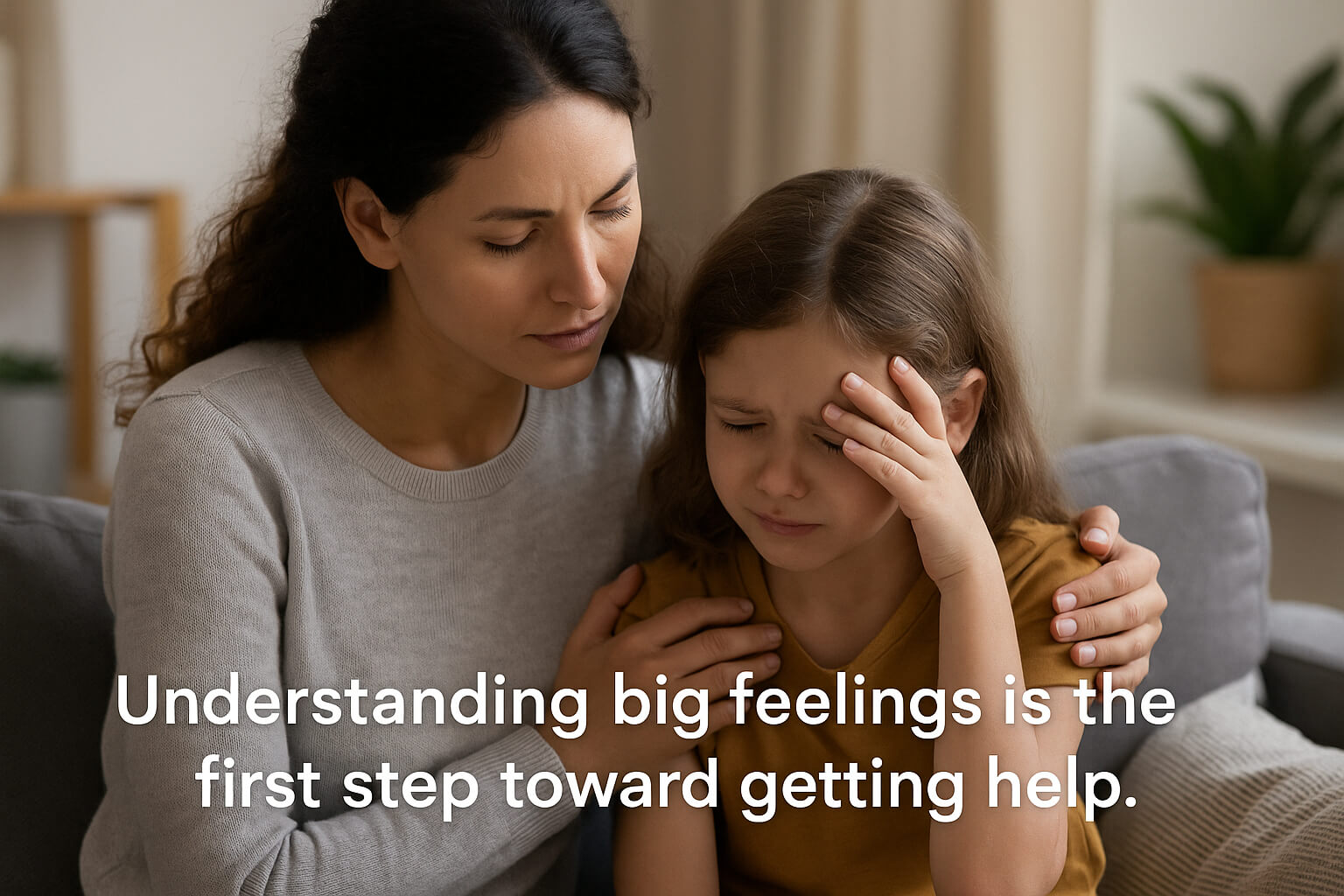
Challenges With Focus And Attention
Children often struggle with focus and attention at some point, but how can you tell if it’s more than just a phase? If your child consistently finds it difficult to stay on task, listen, or complete activities, it might be worth digging deeper. Challenges with focus and attention can affect not only their academic performance but also their relationships and self-esteem. The NIMH explains what comprehensive evaluations typically include and how to work with your child’s school—see “Children and Mental Health: Is This Just a Stage?”.
What Does Difficulty With Focus Look Like?
Does your child jump from one activity to another without finishing? Do they forget instructions moments after hearing them? These signs may point to underlying attention challenges rather than simple distractions.
Imagine asking your child to clean up their toys, and instead, you find them playing with something else halfway through. If this happens often, it could be a red flag. Pay attention to patterns, especially if they occur in various environments like school and home.
How Does It Impact Their Daily Life?
Struggles with focus can show up in everyday routines. Homework may take hours because your child keeps losing track of what they’re doing. Chores might be left half-done, leading to frustration for both you and them.
Socially, these difficulties could make it hard for your child to follow conversations or remember what their friends said. Over time, this can lead to feelings of isolation or being “different.” Understanding the scope of their struggles helps you decide whether outside help is needed.
When Should You Consider Behavioral Therapy?
If strategies like setting timers, breaking tasks into smaller steps, or creating a quiet workspace don’t seem to help, behavioral therapy could be the next step. Therapy provides tools tailored to your child’s unique needs, helping them manage focus challenges effectively. The goal is to teach skills they can use independently over time.
Ask yourself: Is their lack of focus affecting their ability to learn, make friends, or feel confident? If the answer is yes, it might be time to explore professional support.
Simple Ways To Support Your Child At Home
While you consider therapy, small changes can make a difference. Establish a consistent daily routine to create structure. Use visual aids like charts or checklists to help your child stay on track.
Celebrate small wins, such as completing a single task without reminders. Positive reinforcement can boost their confidence and encourage progress. Remember, you’re not alone in this journey, and every step counts.
Unusual Behavioral Patterns
Children often express themselves through their actions and behavior. Some behaviors may seem out of the ordinary or difficult to understand. Not all unusual actions indicate the need for behavioral therapy. But consistent patterns might signal underlying concerns. Identifying these patterns early can help address potential issues effectively.
Sudden Emotional Outbursts
Frequent and intense emotional outbursts can be a sign of distress. These may include extreme anger, crying, or frustration over small challenges. If these reactions occur regularly, they may point to difficulties in managing emotions.
Difficulty Interacting With Others
Struggles in social situations can be another indicator. Children may avoid eye contact, refuse to join group activities, or isolate themselves. Consistent challenges in forming relationships might suggest deeper behavioral concerns.
Obsessive Or Repetitive Actions
Repeating certain actions without clear purpose can signal unusual behavior. This might include lining up toys in a particular order or repeating the same words. If these actions disrupt daily life, they might need professional attention.
Extreme Fear Or Anxiety
Some children display intense fear or anxiety about specific situations. This could include fear of going to school or meeting new people. Persistent anxiety might affect their overall well-being and development.
Difficulty Following Rules
Ignoring instructions or refusing to follow rules can be concerning. This might appear as defiance or repeated disobedience. If this behavior is constant, it could suggest struggles with self-control or understanding boundaries.
Impact On Daily Activities
Changes in daily routines might signal a need for behavioral therapy. Difficulty with sleeping, eating, or social interactions can affect your child’s well-being. Recognizing these disruptions early helps address challenges effectively.
Children’s behavior directly affects their ability to manage daily tasks. When behavioral challenges interfere with routine activities, it can signal a deeper issue. These disruptions might not just frustrate parents but also affect the child’s development. Observing patterns in daily life can help identify if behavioral therapy might help. For perspective on physical symptoms that sometimes overlap with stress, see this parenting explainer on child bloating and related stress factors from Babybabbleblog.
Struggles With Morning Routines
Morning routines set the tone for the day. If your child struggles to complete simple tasks like brushing teeth or getting dressed, it might indicate behavioral difficulties. Frequent tantrums or refusals to cooperate can make mornings stressful for everyone.
Difficulties In Social Interactions
Social activities are essential for children’s growth. If your child avoids group settings, struggles to share, or has frequent conflicts with peers, it could point to underlying emotional or behavioral challenges. These difficulties may lead to feelings of isolation.
Challenges In Completing Schoolwork
Behavioral issues often affect focus and productivity. If your child avoids homework, gets frustrated easily, or cannot stay attentive, it may impact academic performance. Such challenges might require professional attention to address the root cause.
Resistance To Bedtime Routines
Bedtime struggles are common, but constant defiance may signal behavioral concerns. Refusing to sleep, frequent nightmares, or excessive energy at night can disrupt the family’s rest. These patterns may indicate stress or emotional imbalance.
Frequent Emotional Outbursts
Emotional regulation is vital for everyday tasks. If your child has frequent meltdowns over minor issues, this can disrupt their ability to function smoothly. These outbursts often affect the entire household dynamic.
Avoidance Of Daily Responsibilities
Tasks like cleaning up toys or following instructions teach responsibility. If your child refuses to complete even simple chores consistently, it may reflect deeper behavioral struggles. This avoidance can hinder their independence and growth.

Frequently Asked Questions
How Do You Know If Your Child Has A Behavioral Problem?
Watch for signs like aggression, defiance, excessive tantrums, withdrawal, or trouble following rules. Persistent issues may signal a behavioral problem. The AACAP’s checklist outlines common red flags to discuss with a pediatrician or mental health professional.
What Are The 3 C’s Of Behavioral Therapy?
The 3 C’s of behavioral therapy are Catch, Check, and Change. Catch negative thoughts, check their accuracy, and change them to healthier alternatives. These steps help improve emotional well-being and encourage positive behavior patterns. (This mnemonic is a common CBT teaching tool used with children and teens) — Beck Institute.
What Does Behavioral Therapy Look Like For Kids?
Behavioral therapy for kids involves teaching positive behaviors, coping skills, and problem-solving techniques. Therapists use structured activities, rewards, and role-playing to address challenges. Sessions are interactive, goal-oriented, and tailored to the child’s needs. Parents may also participate to support progress.
How To Get A Child Tested For Behavior Problems?
Schedule an appointment with a pediatrician or child psychologist. Discuss concerns and request a behavioral assessment or evaluation. The NIMH outlines what a comprehensive evaluation usually includes.
Conclusion
Understanding your child’s needs is key to their emotional well-being. Behavioral therapy can help address challenges and improve their daily life. Watch for signs like sudden mood changes or difficulty interacting with others. Early support can make a big difference in their growth and confidence. If a crisis arises, in the U.S. you can call or text 988 for immediate, confidential support (free, 24/7) [source: 988 Lifeline, accessed 2025-09-24].
Trust your instincts as a parent and consult a professional if needed. Seeking guidance shows care and commitment to your child’s happiness. Every step forward strengthens their future.


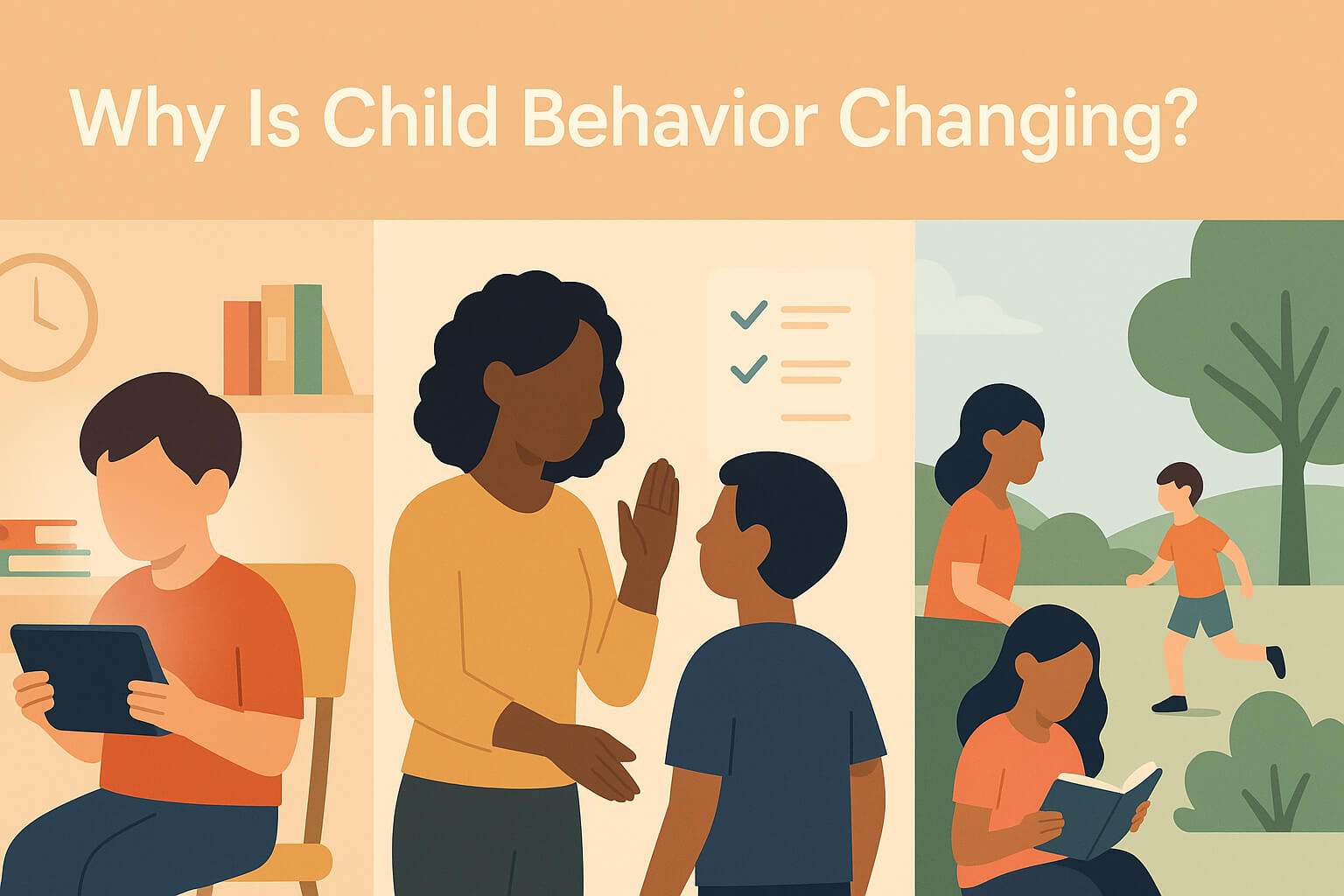
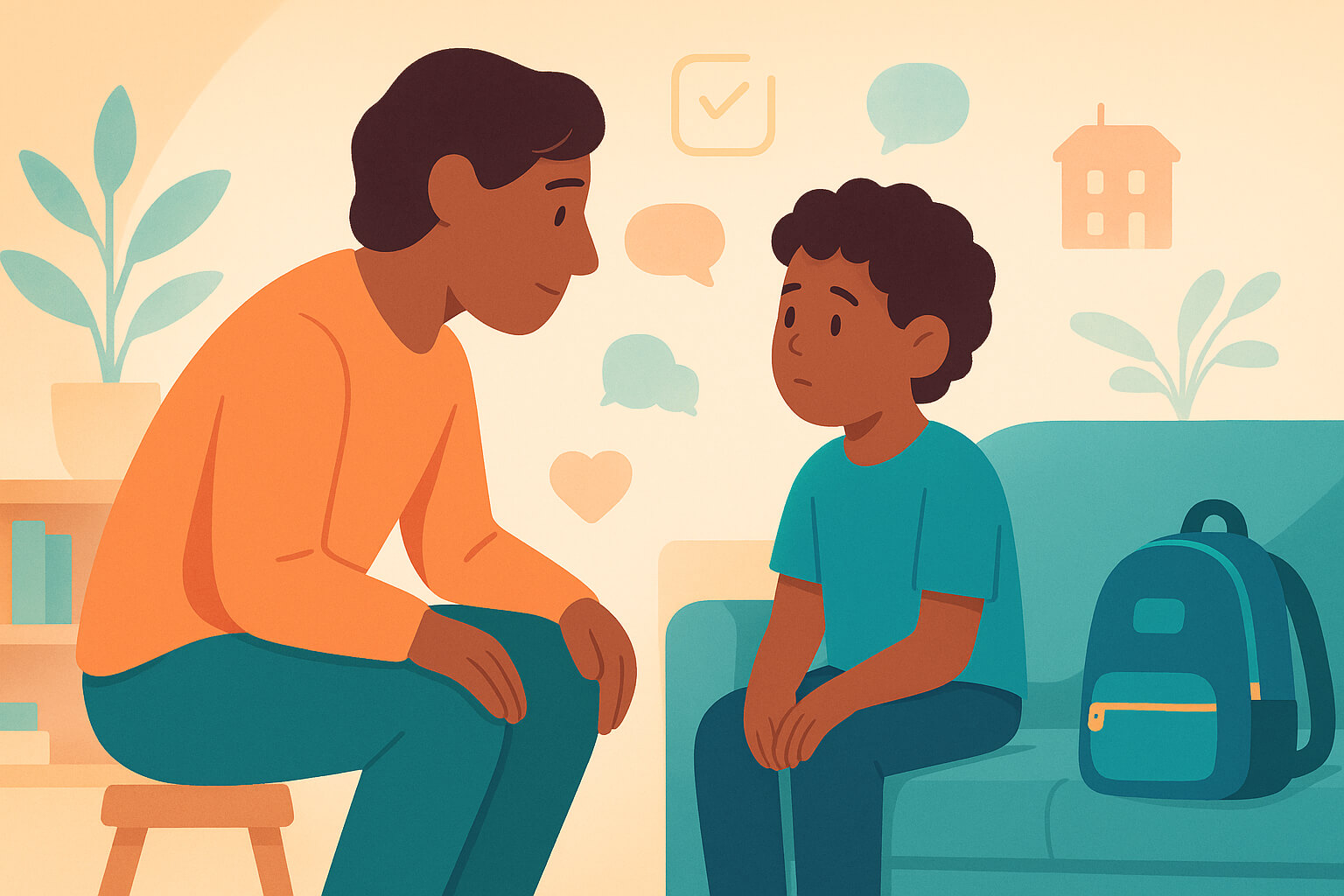
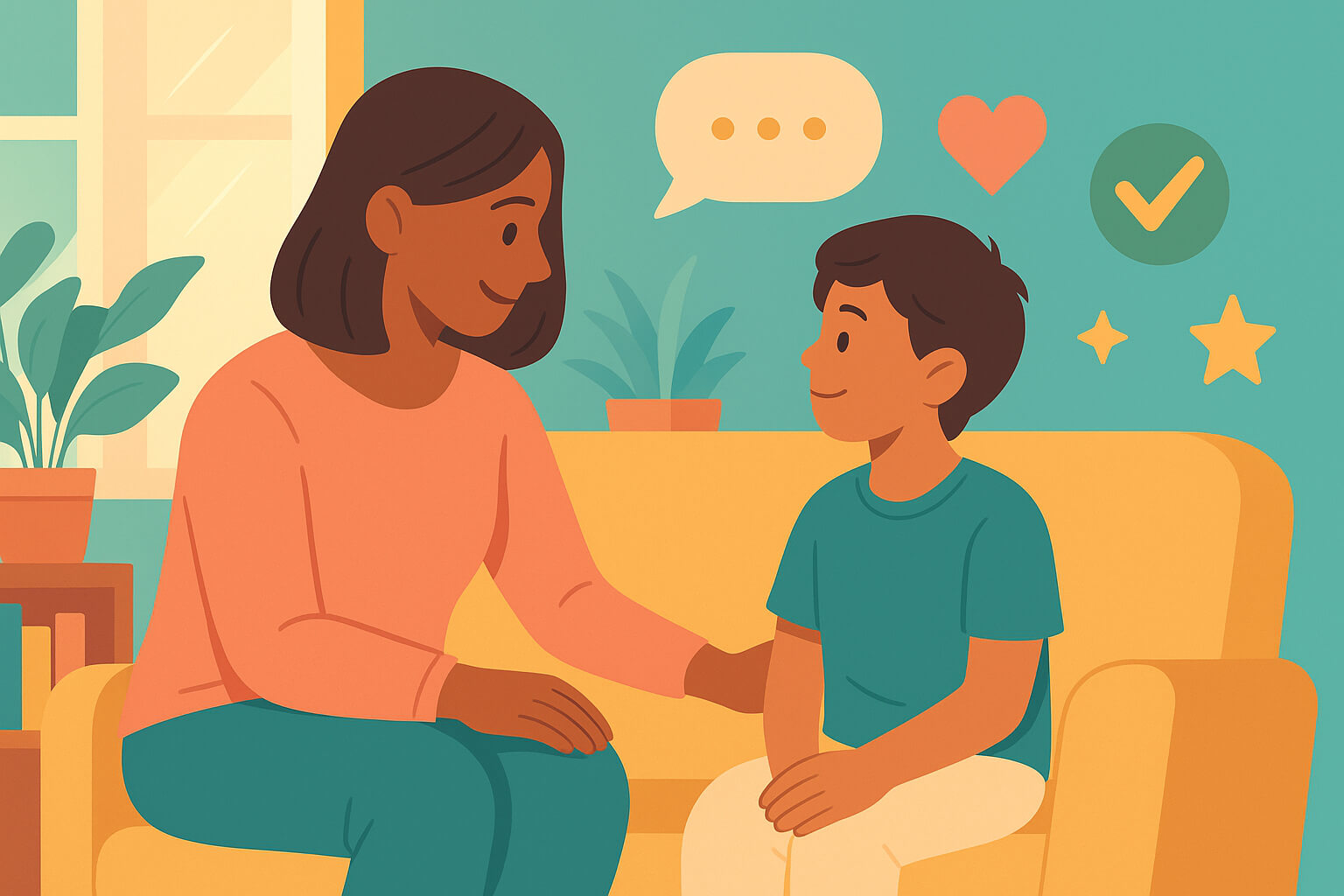
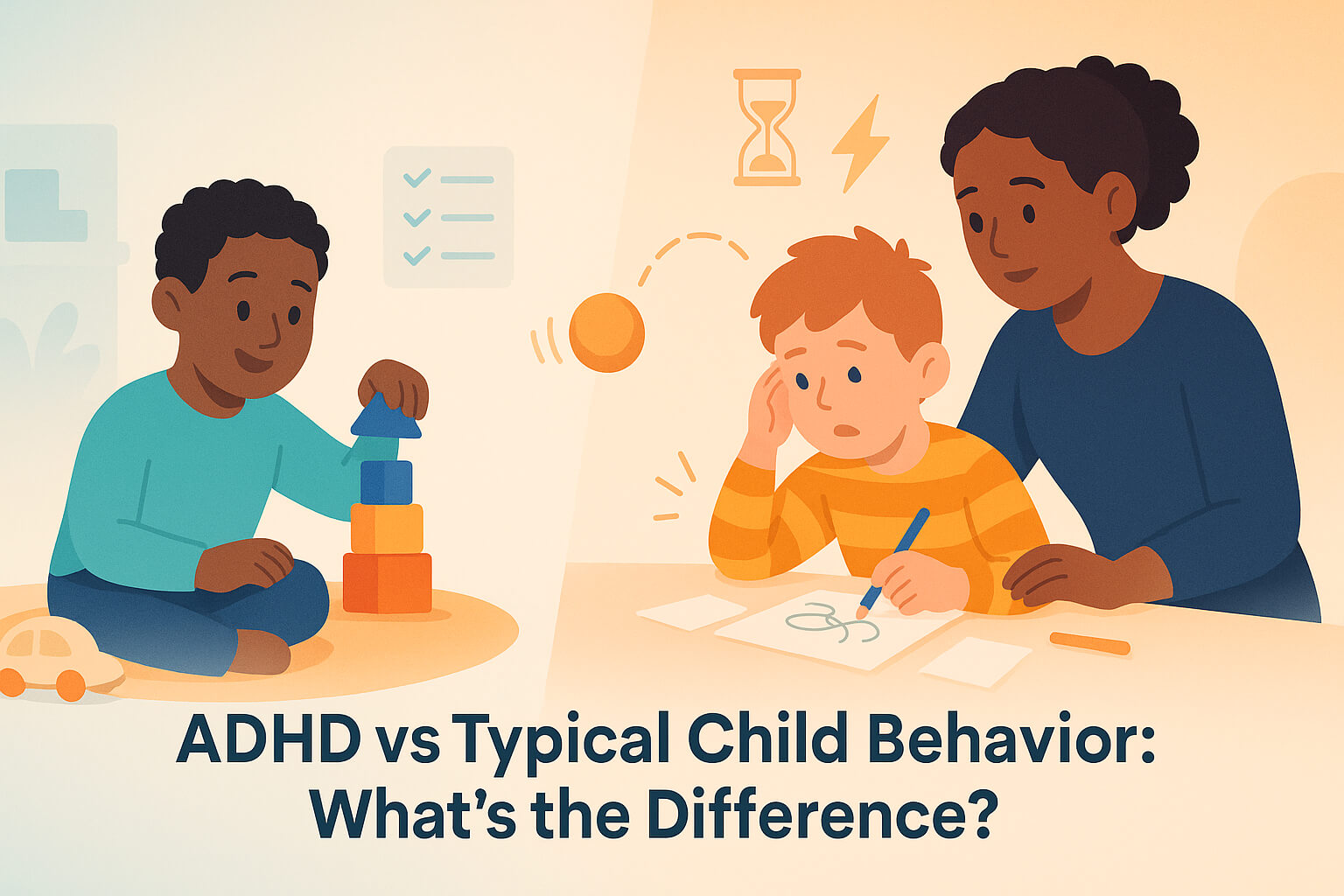
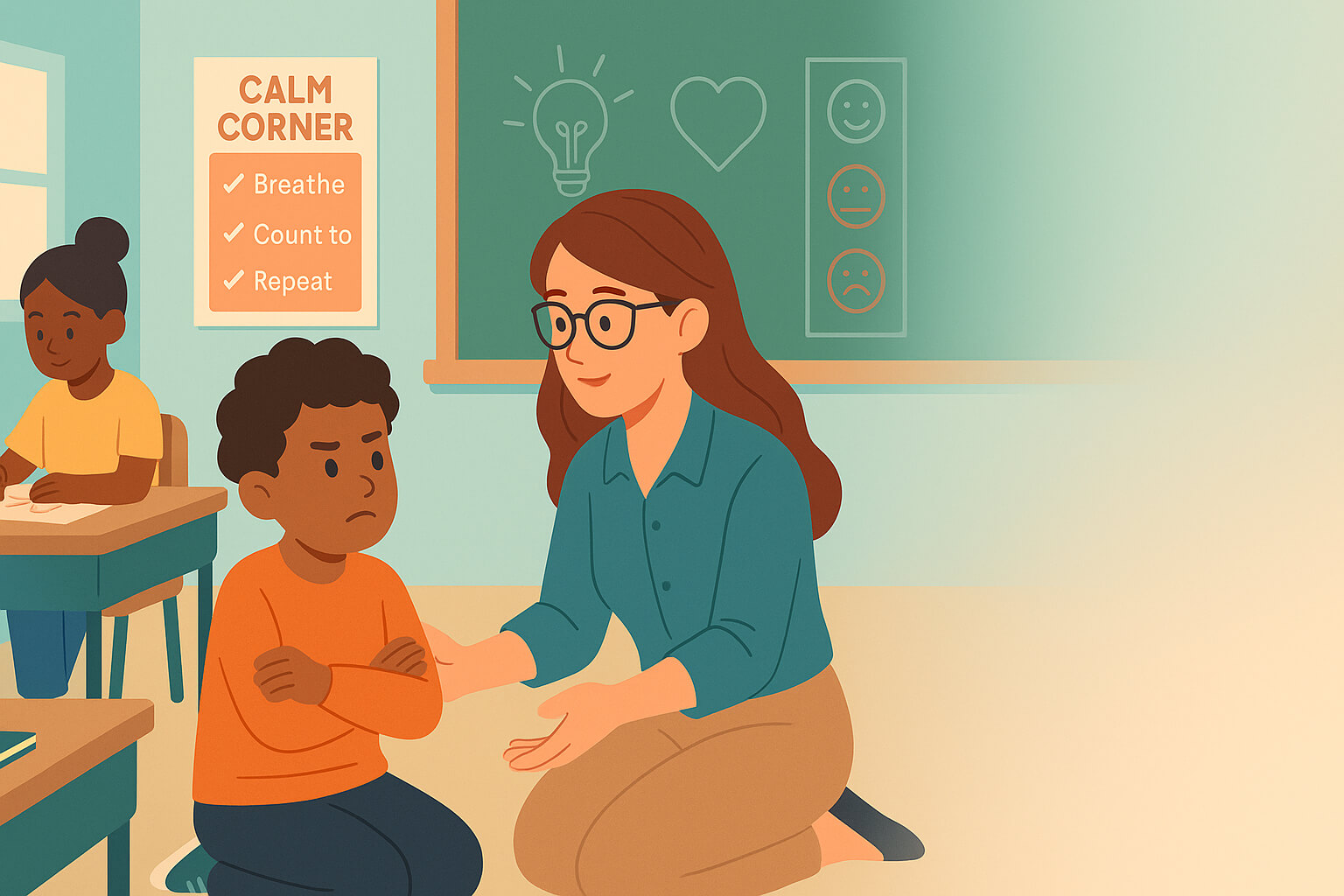
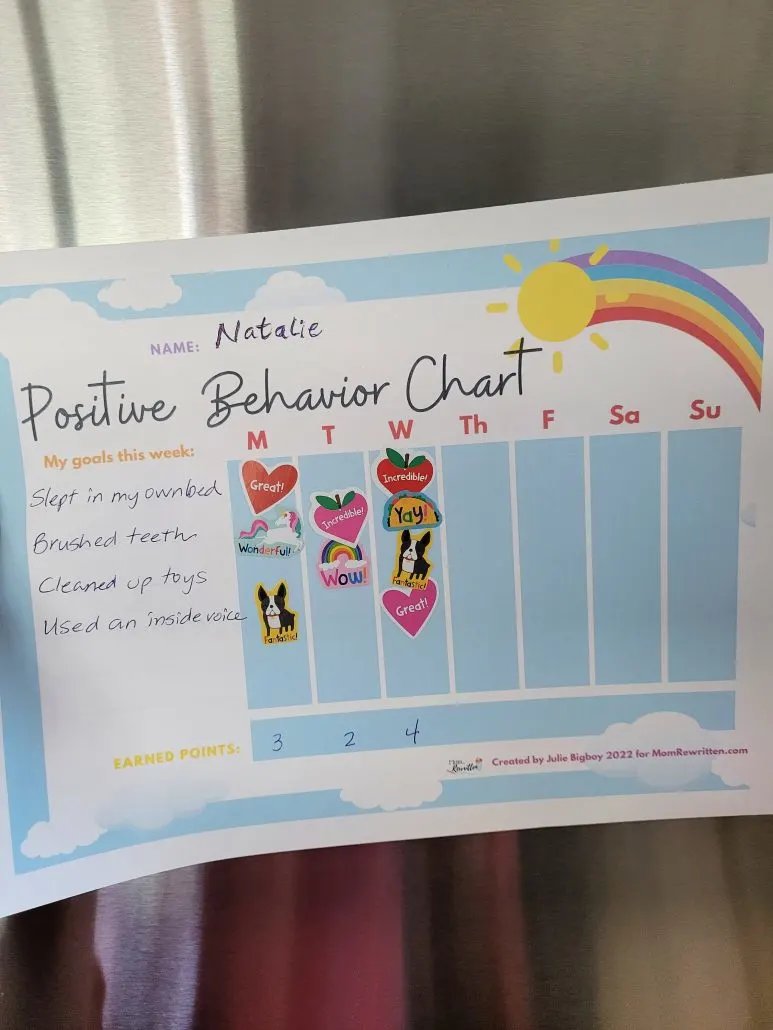
3 thoughts on “Does My Child Need Behavioral Therapy? Signs & Next Steps”